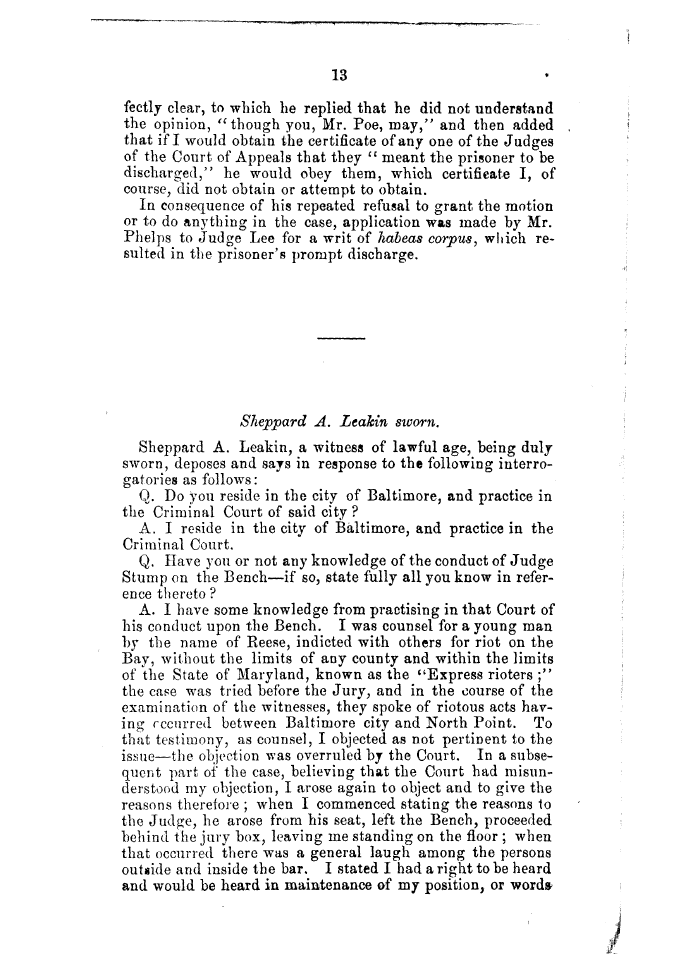|
13
fectly clear, to which he replied that he did not understand the opinion, "though you, Mr. Poe, may," and then added that if I would ohtain the certificate of any one of the Judges of the Court of Appeals that they cc meant the prisoner to be discharged," he would obey them, which certificate I, of course, did not obtain or attempt to obtain.
In consequence of his repeated refusal to grant the motion or to do anything in the case, application was made by Mr. Phelps to Judge Lee for a writ of habeas corpus, which resulted in the prisoner's prompt discharge.
Sheppard A. Ltdkin sworn.
Sheppard A. Leakin, a witness of lawful age, being duly sworn, deposes and says in response to the following interrogatories as follows:
Q. Do you reside in the city of Baltimore, and practice in the Criminal Court of said city ?
A. I reside in the city of Baltimore, and practice in the Criminal Court.
Q. Have you or not any knowledge of the conduct of Judge Stump on the Bench—if so, state fully all you know in reference thereto ?
A. I have some knowledge from practising in that Court of his conduct upon the Bench. I was counsel for a young man by the name of Reese, indicted with others for riot on the Bay, without the limits of any county and within the limits of the State of Maryland, known as the "Express rioters ;" the case was tried before the Jury, and in the course of the examination of the witnesses, they spoke of riotous acts having recurred between Baltimore city and North Point. To that testimony, as counsel, I objected as not pertinent to the issue—the objection was overruled by the Court. In a subsequent part of the case, believing that the Court had misunderstood my objection, I arose again to object and to give the reasons therefore ; when I commenced stating the reasons to the Judge, he arose from his seat, left the Bench, proceeded behind the jury box, leaving ine standing on the floor ; when that occurred there was a general laugh among the persons outside and inside the bar. I stated I had a right to be heard and would be heard in maintenance of my position, or word*
|

